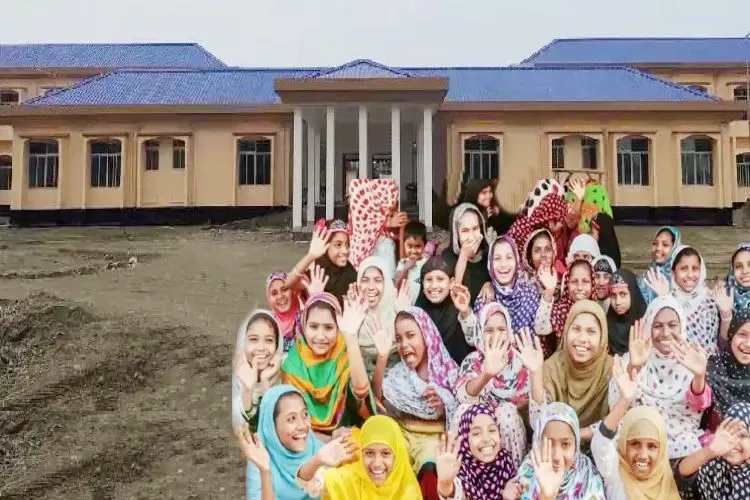Daulat Rahman/Guwahati
The three of the proposed 21 model residential schools for Muslims to bring about socio-economic and educational changes in the community are close to completion.
The buildings of the three model schools at Kalgasia in Barpeta district, Bilasipara in Dhubri district, and Biswanath are designed on the lines of Jawahar Navodaya Vidyalayas situated in different parts of the country.
Even though the model residential schools are meant to impart quality education to students from the six religious minority communities living in Assam, the Muslim students will be hugely benefitted because of their sheer population. The Assam Government has officially recognized Muslims, Christians, Sikhs, Buddhists, Jains, and Parsis as religious minorities.
Director of Assam Minorities Development Board Farida Samsul told Awaz-The Voice that barring Dhubri, in all the 19 districts of the state there will be one model residential school each
.
The schools are being set up under the Pradhan Mantri Jan Vikas Karyakram (PMJVK). Dhubri will be the only district to have two such schools.
The PMJVK seeks to provide better socio-economic infrastructure facilities to the minority community members, particularly in the field of education, health, and skill development which would further lead to the lessening of the gap between the national average and the minority communities regarding backwardness parameters. Under the PMJVK while the Centre provides 90 percent of the total funds, the rest is borne by the State Government.
The districts where these model schools are being constructed are Kamrup, Nalbari, Barpeta, Goalpara, Kokrajhar, Chirang, Dhubri, South Salmara, Darrang, Biswanath, Morigaon, Nagaon, Cachar, Karimganj, Hailakandi, Bongaigaon, Dima Hasao, Karbi Anglong, North Lakhimpur, Sonitpur and Udalguri.
Farida Samsul who is also the Nodal Officer for the implementation of PMJVK in Assam said the model residential schools would be equipped with quality infrastructures and facilities to impart modern education to both boys and girl students from minority communities. He said each school will have a hostel facility.
“We require at least 50 bighas of land in a minority dominated to set up the model residential schools. Construction of such schools in 20 districts is at different stages of progress in different districts. Even though the progress of construction of such schools in Bongaigaon, Hailakandi, and Darrang districts has gone slow due to certain factors, we are confident of solving the problems soon,” Farida Samsul said.

